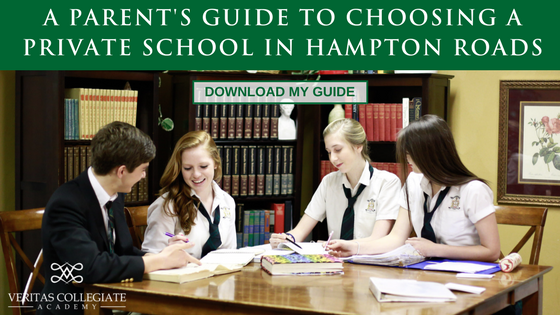Americans love choices. We have hundreds of choices on cable television. Streaming services like Pandora and Spotify have exponentially increased our musical choices. If you buy a new car, you can choose from many options. And the important decision of our time: Android or iPhone? 
Additionally, if you have ever known someone to visit America from another country, he or she will likely comment on the number of choices at the grocery store, especially in the cereal aisle. There is no doubt, Americans love to have a choice. But we surrender our choice when it comes to our children’s education.
Why School Choice?
America is “the land of the free,” but not if the freedom is to choose your child’s school. The exception is if you are wealthy enough to afford paying twice for education – once through taxes funding public schools and the second time through private school tuition – only then do you truly have a choice.
However, all Americans should have the opportunity to choose where their children go to school. As I discussed in my previous articles about investing in your child’s education and affording private school, education is arguably a parent’s most important decision, and not having a choice deprives parents of this decision.
All parents should have the opportunity to decide which school provides the best education and is the best fit for their child. Parents want an education that supports their values and is of high quality to ensure their child is successful in life.
Parents choose priorities for their children every day, and these priorities are generally about what is best for their children. But when it comes to education, most parents are stuck and have to keep their children in the public-school system.
Sadly, U.S. education has consistently declined when compared to other countries, even though U.S. spending on education has regularly increased for nearly thirty years. Additionally, the U.S. consistently spends more money per student than other countries. So, we spend more, yet our education is achieving lower results.[i] So what choice do parents have?
There are many choices – homeschool, private school, magnet school, charter school, or changing public schools. However, some choices require large investments of time (homeschool) or money (private school), while other schools require enduring long waiting lists (magnet and charter schools) with no guarantees. But what are the options to change public schools?
Generally, parents have to move. But this is not a real choice, especially for those who are financially or situationally unable to do so. We would not let our geographic location determine our occupation, the car we drive, the sports team we support or the music we enjoy. Why would we allow geographic location to determine where we educate our children? We do not choose a university (“higher education”) this way.
How Choice Can Work
Parents should have the final decision on where their children attend school. The best avenue is through school vouchers that are associated with the child. The parent would determine which school “earns” the privilege to educate their child.
To put it simply, competition would increase school performance. Additionally, school choice returns decision making to the parents, where it naturally belongs.
School Choice by David Harmer provides good information regarding the benefits and challenges associated with school vouchers. And a more current and concise assessment can be found in an e-book titled, Why School Choice Works.
One of the biggest challenges to school vouchers is the argument that they would destroy current schools. This scares parents and reduces support. However, enacted properly, school vouchers can alleviate these concerns.
A simple recommendation is for the parents to have a voucher with a value that is 50 percent of the statewide per-capita spending on education by grade level. The remaining 50 percent of per-capita spending remains at the geographically determined public school.
For example, if a state spends $15,000 per student on secondary education, the parent would have a voucher of $7,500 to use at a school of their choice. The school their child would attend under the existing system would retain the other $7,500. This plan would lower class sizes and increase per-capita spending in the existing schools, two primary complaints of proponents of the existing school system.
Also, the fact that parents decide which school their children attend should remove any concern about the government endorsing any religious-based school.[ii] This aspect already exists in the G.I. Bill for veterans. Bottom line, tax-paying parents are partially recouping tax money they are contributing through our tax system, while not upsetting the current educational system.
School choice is not perfection in any form, and parents should pay close attention to “strings” associated with funding. In The Case for Classical Christian Education, Doug Wilson provides ample warning on why vouchers could be a bad idea. However, potential pitfalls are not a sufficient reason to refrain from returning choice to the proper place, the parents.
In conclusion, Americans demand choices in every facet of life, and we should demand it in education. School vouchers can be a win-win for all Americans by providing choice and competition, while not upsetting the existing system.
Vouchers can provide the necessary catalyst to catapult American primary and secondary students to the top of international academic performance rankings. Most importantly, parents will have primary control over the decision of where to educate their children.
[i] “U.S. Education Spending Tops Global List, Study Shows,” http://www.cbsnews.com/news/us-education-spending-tops-global-list-study-shows/.
[ii] While this is a false narrative, it is established precedence in the Supreme Court.


.png?width=1920&name=VCA%20VA%20Logo%20White%20PNG%20(1).png)

